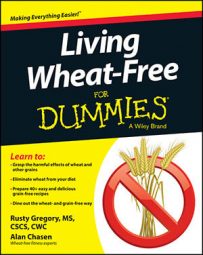You might already know how wheat consumption can increase levels of zonulin, which causes the blood-brain barrier to allow unwanted particles through and leads to inflammation. Science has shown a link between this inflammation and neurological diseases such as Parkinson's, Alzheimer's, and dementia (in addition to neurological symptoms of leaky gut such as migraines and brain fog).
The brain contains 100 billion neurons, or nerve cells, and something like 1 to 5 trillion glial cells. Glial cells are involved in a number of processes, including inflammation. After these cells become inflamed, they stay that way; they don't have an off switch. They tend to cause the surrounding neuron cells to die off.
All the suspects that result in leaky gut are suspects for brain inflammation: wheat, other grains, sugar, processed foods, NSAIDS, antibiotics, aspirin, stress, and chronic infections. Environmental toxins play a role as well.
One of the best indicators for future dementia or Alzheimer's is a high fasting glucose level or high hemoglobin A1C. As you eat wheat and sugar, the high blood glucose can bind to proteins, causing an increase in free radicals and inflammation. And although some free radicals are necessary for life, too many of these fellows can cause serious neurological and other problems.
A blood glucose spike isn't the only risk factor wheat poses. The gluten in wheat provides another inflammatory trigger in the form of cross-reactivity. In this process, the unwanted gluten molecule that has entered the bloodstream resembles a molecule of neurological tissue, so while the autoimmune response is attacking gluten it also mistakenly attacks brain tissue.

